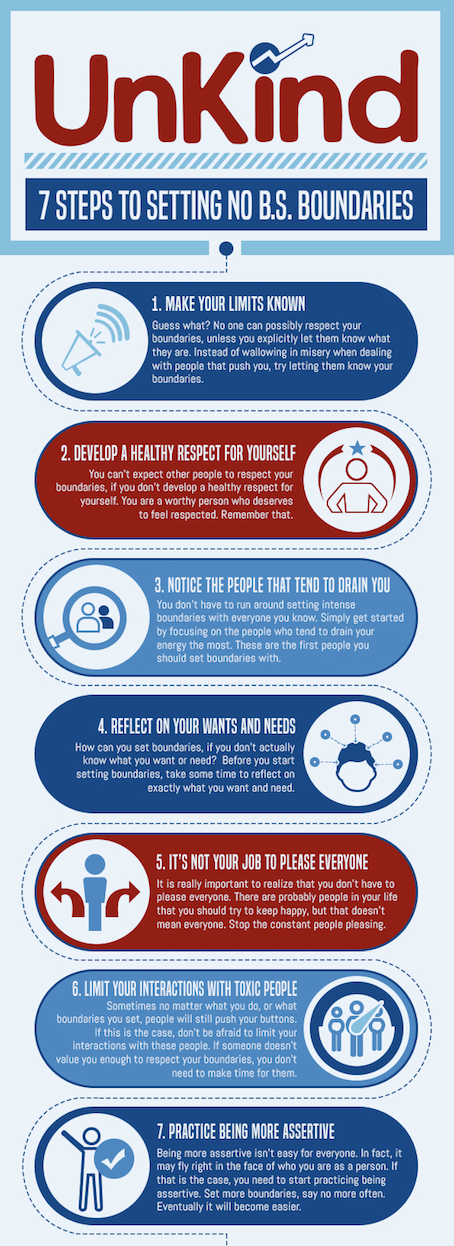The Stop People Pleasing Action Plan: Stand Up for Yourself
The Stop People Pleasing Action Plan: Your days of being a people pleaser are over. From here on out, you’re going to learn a new way to think about being nice – without being ground into the dirt for doing so.
The 4-Step Stop People Pleasing Action Plan:
|
3. Stay calm
When asserting yourself
the first time or two you can expect some pushback. When that happens, the last
thing you need is to get caught up in other
peoples drama.
Try to remain calm and refuse to respond without carefully thinking about your
words. Even if you keep calm in the face of adversity, keep in mind that you
never have to sit still for abuse. Quietly state your case, and if need be, walk
away. Never allow anyone to mistreat you.
4. Remember to speak up
You’re not standing up
for yourself if no one knows your intentions. Use language that makes your
position clear without overstating the case. At the same time, you need to be
clear in what you’re saying. Leave no doubt what you mean.
5. Fine tune your argument
Chances are you’re
going to have to clarify what you’re trying to say at some point. Make sure you
have salient points to back up your position. Avoid emotional arguments, because
people will not take you seriously if you get too defensive.
6. Make assertiveness a
habit
It takes time to create a new pattern to follow. Like any other habit, you need
to practice standing up for yourself daily. Look for opportunities to be
assertive every single day until it’s second nature to stand up for yourself.
7. Protect your resources
There
are only so many hours in a day.
Be assertive about how you spend your time. Don’t allow anyone to take over
your schedule.
8. Agree to disagree
There are going to be
times when you reach an impasse. Maybe you had good reasons to stand up for
yourself, but they also had a good reason for wasting
your time. Sometimes the best solution is to agree to disagree, and then both
parties step back for the sake of not creating a situation that’s only going to
devolve into an argument.
9. Don’t let anyone else
tell you how you feel
Right or wrong, you’re
feeling what you’re feeling. If you think you’re being taken advantage of, then
it doesn’t matter whether you are or not. It does matter that you let others
know your concerns and how you feel about the situation. Standing up for
yourself is about validation more than it’s about being right (though it’s nice
to be right too sometimes).
10. Act “as if”
In therapy they tell you to act “as if,” meaning that even if you’re not
feeling a certain way, to pretend as if you are. The concept of faking it until you make it has proven to have success in a
variety of fields. Areas from finding happiness, to a multitude of other
problems. The basic premise is that if you act a certain way (like being
happy) that you will actually feel satisfied after a while. In this case, you
might find that pretending to be assertive will lead to feelings of actual
assertiveness. Instead of, "Fake it 'til you make it," I prefer, "Face it 'til you make it."
|
Taking action and doing something about
the circumstances or things you don't like is very empowering. Think
back on a time when you've taken a stand or done something to change
your situation instead of complaining about it. I bet your confidence
went through the roof once you started talking action. |

